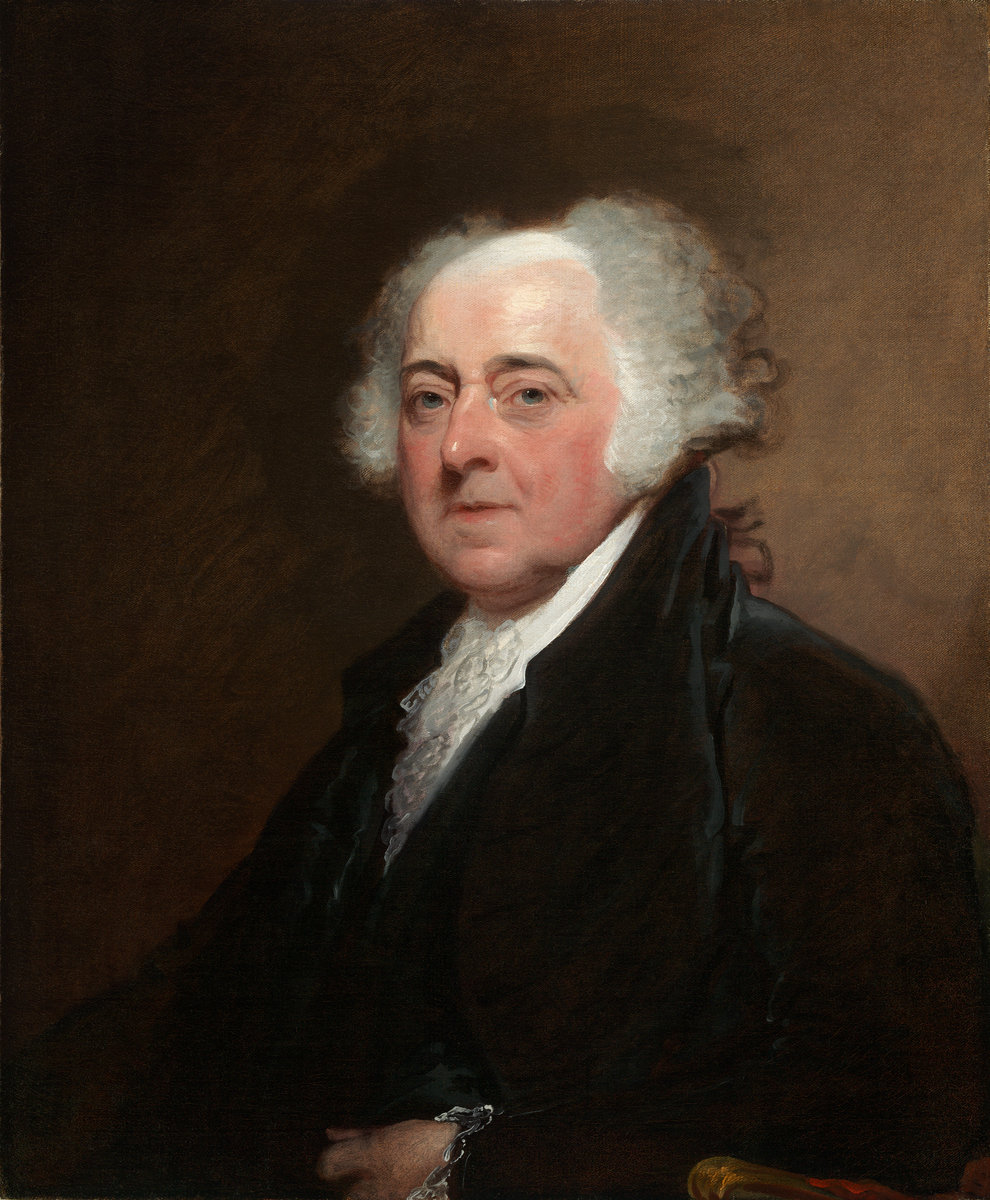It was 1779 and John Adams and his sons were on their way to Paris with the goal of establishing a commercial treaty with Great Britain and ending the Revolutionary War. On the way, however, their ship was battered by storms and they limped their way into Spain. After some debate and discussion, Adams and his retinue decided to take the land route to Paris, which took them through Bilbao and the heart of the Basque Country. What he learned about the Basque people and their government found its way into his A Defence of the Constitutions of Government of the United States of America. In turn, Bilbao has commemorated his visit with a bust in the city.

- During his time in Bilbao, Adams was entertained by the Gardoqui family. This family proved immensely helpful during the course of the war, clandestinely funneling supplies to the Americans through a network of business fronts.
- Adams was appalled, for the most part, by the living conditions of the Spanish people. Of one lodging, he wrote “There was no Chimney. … The Smoke filled every Part of the Kitchen, Stable … The Mules, Hogs, fowls, and human Inhabitants live however all together … The floor had never been washed nor swept for an hundred Years – Smoak, soot, Dirt, every where.” He was particularly put off by the position of the Church and clergy: “I see nothing but Signs of Poverty and Misery, among the People. A fertile Country, not half cultivated, People ragged and dirty, and the Houses universally nothing but Mire, Smoke, Fleas and Lice. Nothing appears rich but the Churches, nobody fat, but the Clergy.”
- When he finally made it to Bilbao, he was intrigued by the form of government he found. In his Defence of the Constitutions, he wrote: “In a research like this, after those people in Europe who have had the skill, courage, and fortune, to preserve a voice in the government, Biscay, in Spain, ought by no means to be omitted. While their neighbours have long since resigned all their pretensions into the hands of kings and priests, this extraordinary people have preserved their ancient language, genius, laws, government, and manners, without innovation, longer than any other nation of Europe.”
- He went on: “It is a republic; and one of the privileges they have most insisted on, is not to have a king.” Adams attributes the “flourishing commerce” to “their liberty.” He praises the “large and commodious houses and barns of the farmer; the lands are well cultivated; and there is a wealthy, happy yeomanry.“
- While Adams praises the liberty and industriousness of the Basques, he also has strong words about their supposed democracy, noting that “officers… are elected by the citizens, but they must by law be elected… out of a few noble families, unstained, both by the side of father and mother, by any mixture with Moors, Jews, new converts, penitentiaries of the inquisition, &c. They must be natives and residents, worth a thousand ducats … Thus we see the people themselves have established by law a contracted aristocracy, under the appearance of a liberal democracy. Americans, beware!“
Primary source: The Works of John Adams, Second President of the United States, Vol IV by Charles Francis Adams.


